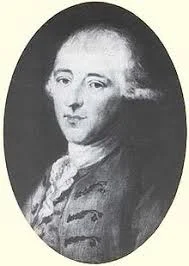Pierce Butler and The Fugitive Slave Clause
Updated 6/14/21
Pierce Butler was a signer of the United States Constitution.
Butler was instrumental in winning the Revolutionary War, though his work on behalf of slave owners at the Constitutional Convention puts a severe blemish on his reputation.
Pierce Butler
Much like Horatio Gates, Richard Montgomery and Charles Lee, Pierce Butler was part of a wave of British Army officers who resigned their commissions and relocated to the colonies in the years leading up to the American Revolution.
Butler brought his family to South Carolina and established a large plantation, one that would eventually lead him to be one of the wealthiest men in the colony.
Unlike the other officers who relocated, Butler did not immediately jump into the war. He supported the Patriots, but was one of the many colonists who did their best not to take sides. That was until about half way through the struggle, when Governor John Rutledge asked for his help.
His business now firmly established, Butler happily complied. He reorganized the State's defenses after the British changed tactics and invaded Georgia. Their intention was to move north, conquering each State one by one.
South Carolina was next.
Designated Survivor
Unfortunately, Butler's help did not help.
South Carolina was occupied after the Siege of Charleston.
Pierce was not captured with the majority of the American troops. He had been sent inland to help run the colony in case the battle was lost.
Butler led the resistance movement within occupied Georgia and South Carolina.
Constitutional Convention
While participating in the Revolution, Pierce's home and business were destroyed. This once wealthy man was left nearly broke. He traveled to Europe to re-establish his enterprise.
Butler returned home and quickly got back on his feet. By 1787 he was asked to represent South Carolina at the Constitutional Convention.
Butler supported and signed the Constitution, though he did not attend his States ratification convention.
Senator
Butler was viewed by many on the frontier as a spokesman for their beliefs and, as such, was elected to the inaugural United States Senate.
Initially considered a Federalist, Pierce quickly switched his affiliation to the Anti-Administration Party when he saw the vast amount of power the Administration was accumulating.
Not long after, Butler declared himself an independent. He had major disagreements with the goals of both parties.
Retirement
Eventually Butler retired from politics. His last notable action of the American Revolution was when he let his old buddy Aaron Burr stay at his house. This is a bit surprising because Burr had just fled south to escape his arrest warrants. He was being charged in both New York and New Jersey for the murder of Alexander Hamilton.
After this, Butler occasionally served in the State Assembly. For the most part, however, he enjoyed a quiet retirement.
The Great Slave Auction
No conversation about Butler would be complete without discussing his unique position among slave owners.
Pierce was the leading voice for plantation owners at the Constitutional Convention.
He sponsored Article IV, Section 2, Clause 3 of the Constitution which demanded that runaway slaves be returned to their masters, which has since become known as the Fugitive Slave Clause.
Additionally, Butler claimed ownership of arguably the largest group of enslaved people in the United States. When he died, he left his plantations and all those living within to his grandsons.
One grandson, Pierce Mease Butler, ran up heavy gambling depts. and paid them off by selling his inheritance.
On March 2 and 3, 1859, the younger Butler held the largest sale of human beings in American history with 436 people put on the auction block.
This event is historically known as The Great Slave Auction, or, more accurately, The Weeping Time.
If you enjoyed this article, please leave a comment letting me know what you thought. Any feedback can only help me provide you with more compelling stories.
Also, if you have not yet subscribed to the email list, please do so! You'll get a new Founder every day and I will not give your information to anyone else.
The book I am recommending today is quite different from my usual choices. 'The Weeping Time' is about The Great Slave Auction. All book sales are done through our affiliate Amazon.






